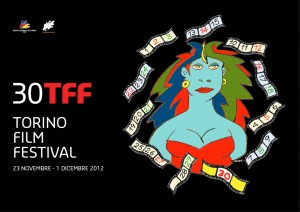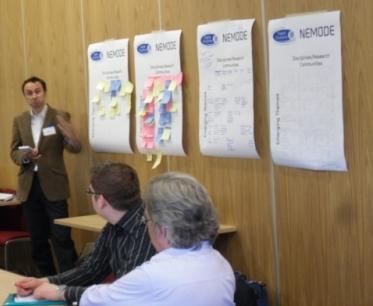Funding Source: Association for Journalism Education
Chief Investigators: Dr Einar Thorsen and Sue Wallace, The Media School, Bournemouth University
Research Assistant: Dr Caitlin Patrick, The Media School, Bournemouth University
Project brief
 Journalism is among the most rapidly changing industries, affected by both technological advances and shifting consumer habits. This makes it paramount for journalism education to keep pace with trends such as changing journalism practices and the migration of audiences to online journalism. One possible outcome of this imperative is for online news or magazine websites to be developed to a) showcase student reporting, b) serve as an educational tool in professional journalism practices, and c) facilitate research into news and journalism innovation. Journalism courses are increasingly making use of their own websites in one or more of these ways, but development, as in the news industry itself, has tended to be haphazard and quite often on a trial and error basis.
Journalism is among the most rapidly changing industries, affected by both technological advances and shifting consumer habits. This makes it paramount for journalism education to keep pace with trends such as changing journalism practices and the migration of audiences to online journalism. One possible outcome of this imperative is for online news or magazine websites to be developed to a) showcase student reporting, b) serve as an educational tool in professional journalism practices, and c) facilitate research into news and journalism innovation. Journalism courses are increasingly making use of their own websites in one or more of these ways, but development, as in the news industry itself, has tended to be haphazard and quite often on a trial and error basis.
This project seeks to address this problematic by conducting a survey of news and magazine websites used in journalism courses, their history, evolution and integration into education practice. The aim is not to produce a standard model to be applied in every case. Rather, the intention is to collect and share experiences to inform education and curriculum development. The sharing of best practice can also help to maintain high standards in journalism education.
International survey
Phase One of the project launched in March 2012 and involves an international survey into the use of news and magazine websites in journalism education.
We would be most grateful if anyone involved in journalism education could assist by completing our survey:
https://www.surveymonkey.com/s/websites-in-journalism-education
We are interested in the views of both staff and students, so please circulate as widely as possible.
The survey is completed anonymously. For staff it takes no more than 10-15 minutes to complete, with the student section possible to complete in 5 minutes. All staff and students on undergraduate and postgraduate journalism courses are encouraged to partake and we welcome your participation.
Case studies
Phase Two of the project will take place in the second half of 2012 and involve up to five site visits to observe how websites are used in live news days simulating real-life news operations. During these visits we propose to conduct follow-up interviews in conjunction with examination of websites, to scrutinise in finer detail the patterns of application and usage.
Project outcomes
This project will investigate both technological and editorial issues associated with use of websites in journalism education.
Findings from this research project will be made available online and as contributions to relevant scholarly journals, including the AJE journal Journalism Education, outlining experiences, advice, and different models of application. The findings may also be of use to accreditation bodies and industry panels.
If you would like further information on the project, you can view the original project brief.







 Academics from multi-disciplinary backgrounds recently attended a two day Digital Economy Network+ event at the University of Cambridge. The aim of the event was to continue the process of building a network of people interested researching New Economic Models for the Digital Economy.
Academics from multi-disciplinary backgrounds recently attended a two day Digital Economy Network+ event at the University of Cambridge. The aim of the event was to continue the process of building a network of people interested researching New Economic Models for the Digital Economy. Watch this excellent short video from BU’s Prof Stuart Allan on the relationship between the study of journalism and the study of democracy, through work funded by the
Watch this excellent short video from BU’s Prof Stuart Allan on the relationship between the study of journalism and the study of democracy, through work funded by the 
















 Fourth INRC Symposium: From Clinical Applications to Neuro-Inspired Computation
Fourth INRC Symposium: From Clinical Applications to Neuro-Inspired Computation Writing policy briefs
Writing policy briefs Upholding Excellence: The Concordat to Support Research Integrity
Upholding Excellence: The Concordat to Support Research Integrity Today’s Documentation Will Serve Tomorrow’s Justice
Today’s Documentation Will Serve Tomorrow’s Justice ECR Funding Open Call: Research Culture & Community Grant – Application Deadline Friday 12 December
ECR Funding Open Call: Research Culture & Community Grant – Application Deadline Friday 12 December MSCA Postdoctoral Fellowships 2025 Call
MSCA Postdoctoral Fellowships 2025 Call ERC Advanced Grant 2025 Webinar
ERC Advanced Grant 2025 Webinar Horizon Europe Work Programme 2025 Published
Horizon Europe Work Programme 2025 Published Horizon Europe 2025 Work Programme pre-Published
Horizon Europe 2025 Work Programme pre-Published Update on UKRO services
Update on UKRO services European research project exploring use of ‘virtual twins’ to better manage metabolic associated fatty liver disease
European research project exploring use of ‘virtual twins’ to better manage metabolic associated fatty liver disease